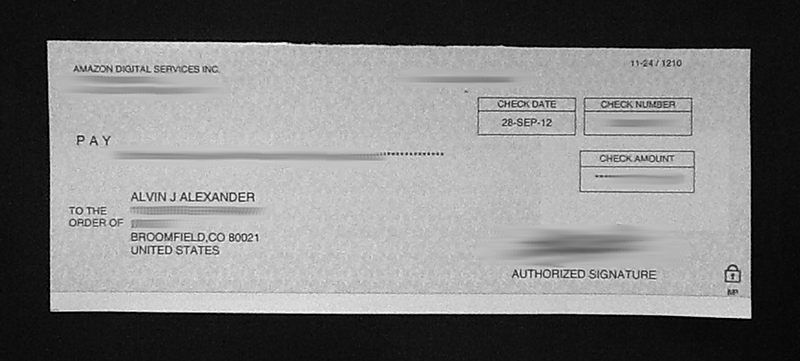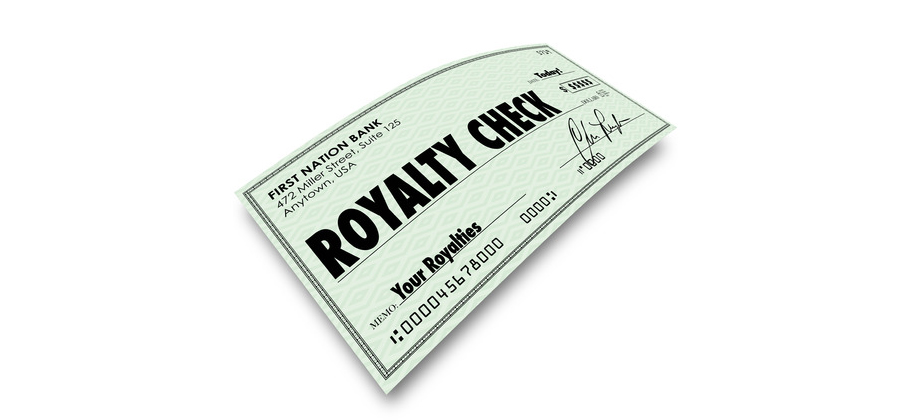Introduction
If you’ve ever wondered how musicians make money, you’re not alone. Many people don’t know that musicians make money from royalties. Royalty checks are payments made to songwriters, composers, and music publishers for the use of their copyrighted work.
For example, when a radio station plays a song, the songwriter and composer are paid a royalty. If a TV show uses a piece of music, the music publisher is paid a royalty. These payments are based on how often the work is used and how many people will hear it.
Royalty checks can be a significant source of income for musicians, especially if their work is used often. For example, well-known songs can generate thousands of dollars in royalties each year. So if you’re ever wondering how that musician friend of yours makes money, now you know!
What are royalty checks?

As an author, you are entitled to royalties each time your book is sold. A royalty check is a payment that represents these earnings.
The amount of money you receive in a royalty check depends on the list price of your book and the royalty rate that was negotiated in your publishing contract. For example, if your book has a list price of $20 and your royalty rate is 10%, you will receive $2 in royalties for each copy that is sold.
It’s important to note that not all sales will result in a royalty check. For instance, if your book is sold at a discount or through certain types of promotions, you may not earn royalties on those copies. Additionally, some publishers pay royalties on a quarterly basis, so it may take several months for your earnings to accumulate before you receive a check.
If you have any questions about the amount of money you should expect to receive in royalties, be sure to ask your publisher for clarification.
How do you establish royalties?
There are a few different ways that you can establish royalties. The first is by signing a contract with a record label. This contract will typically give the label the rights to your music for a certain period of time, and in return, they will pay you royalties for the sales of your records.
Another way to establish royalties is by self-releasing your music. In this case, you will be responsible for manufacturing, distributing, and promoting your own records. You will then keep all of the proceeds from record sales, minus any expenses incurred.
Finally, you can also establish royalties through performing rights organizations (PROs). PROs collect fees from businesses that use music publicly, such as radio stations and nightclubs. They then distribute these fees to their members (artists), who have registered their songs with the PRO.
Examples of different royalties
There are many different types of royalties that can be earned from a variety of sources, such as copyrighted material, natural resources, or intellectual property. Here are some examples of different royalty arrangements:
– Copyrighted material: When someone purchases the rights to use a copyrighted work, they agree to pay the copyright holder a royalty fee for each use. For example, if a company wants to use a song in their commercial, they would need to negotiate a royalty fee with the songwriter or publisher.
– Natural resources: Royalties can also be paid for the extraction and sale of natural resources, such as oil, gas, minerals, or timber. The owner of the land where the resources are located typically receives these payments.
– Intellectual property: When someone uses someone else’s intellectual property – such as a patent, trademark, or trade secret – they may be required to pay royalties to the owner. This is usually done through licensing agreements.
How can you get royalty checks?
There are a few different ways that you can get royalty checks. The first way is to simply sign up for a royalty checking account with a company like BMI or ASCAP. Once you have signed up for an account, you will begin receiving royalties for the use of your music.
Another way to get royalty checks is to work with a publisher. A publisher will help ensure that you are getting paid for the use of your music. They will also help you collect any royalties that may be owed to you.
The last way to get royalty checks is to work with a performing rights organization (PRO). A PRO represents songwriters and composers and collects royalties on their behalf. They will then distribute those royalties to their members.
Can you negotiate royalties?
Yes, you can negotiate royalties. The terms of your agreement will determine how and when you get paid, so it’s important to have an attorney look over any contracts before you sign them. Some labels will give you a higher royalty rate if you agree to give them exclusive rights to your music. Others might agree to a lower rate in exchange for a longer contract. It’s important to do your research and understand the different options available to you before making any decisions.
Advantages of royalty checks
If you’re a musician, you’ve probably heard of royalty checks. But what are they exactly? And more importantly, what are the advantages of receiving them?
Royalties are payments that artists receive for the use of their work. In the music industry, royalties are typically paid to composers, lyricists, and performers for the use of their songs. For example, if a song is played on the radio, the artist who wrote and performed the song will receive a royalty check.
There are several advantages of receiving royalty checks. First and foremost, it’s a great way to make money as an artist. If your songs are being played on the radio or used in other forms of media, you’re earning money without having to do any additional work. Additionally, receiving royalties can help increase your visibility as an artist and potentially lead to more opportunities down the road.
So if you’re wondering whether or not you should be pursuing royalties, the answer is most likely yes! Royalty checks can provide a nice supplement to your income and help you reach your long-term goals as an artist.
Disadvantages of royalty checks
There are a few disadvantages to royalty checks that you should be aware of before you start relying on them as a source of income. For one, they can be unpredictable and unreliable. You might receive a large check one month and then nothing the next. This can make it difficult to budget and plan for your expenses.
Another downside is that royalty checks are often taxable. This means that you could end up owing the government money if you don’t account for it in your tax return. Finally, royalty checks can take a long time to arrive. Sometimes it can take months or even years for the money to trickle in, so don’t count on them as a timely source of income.


